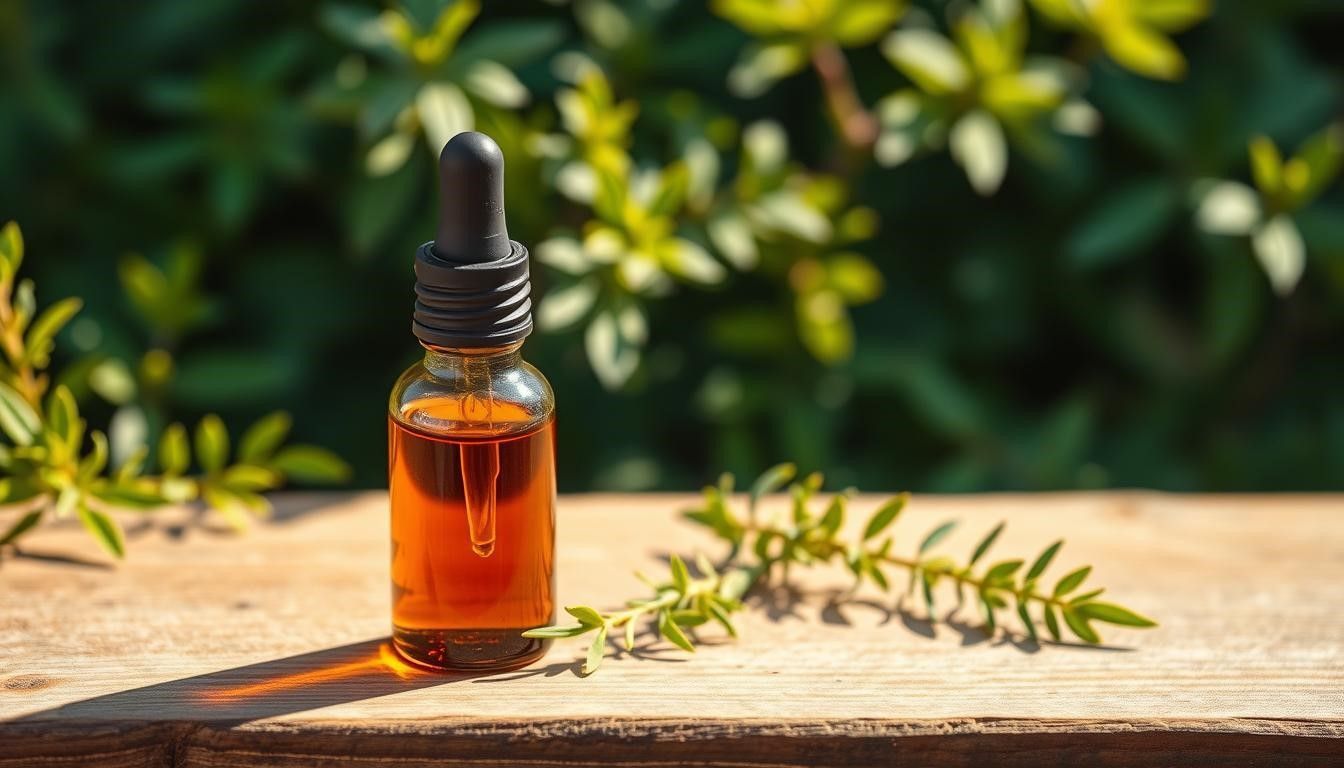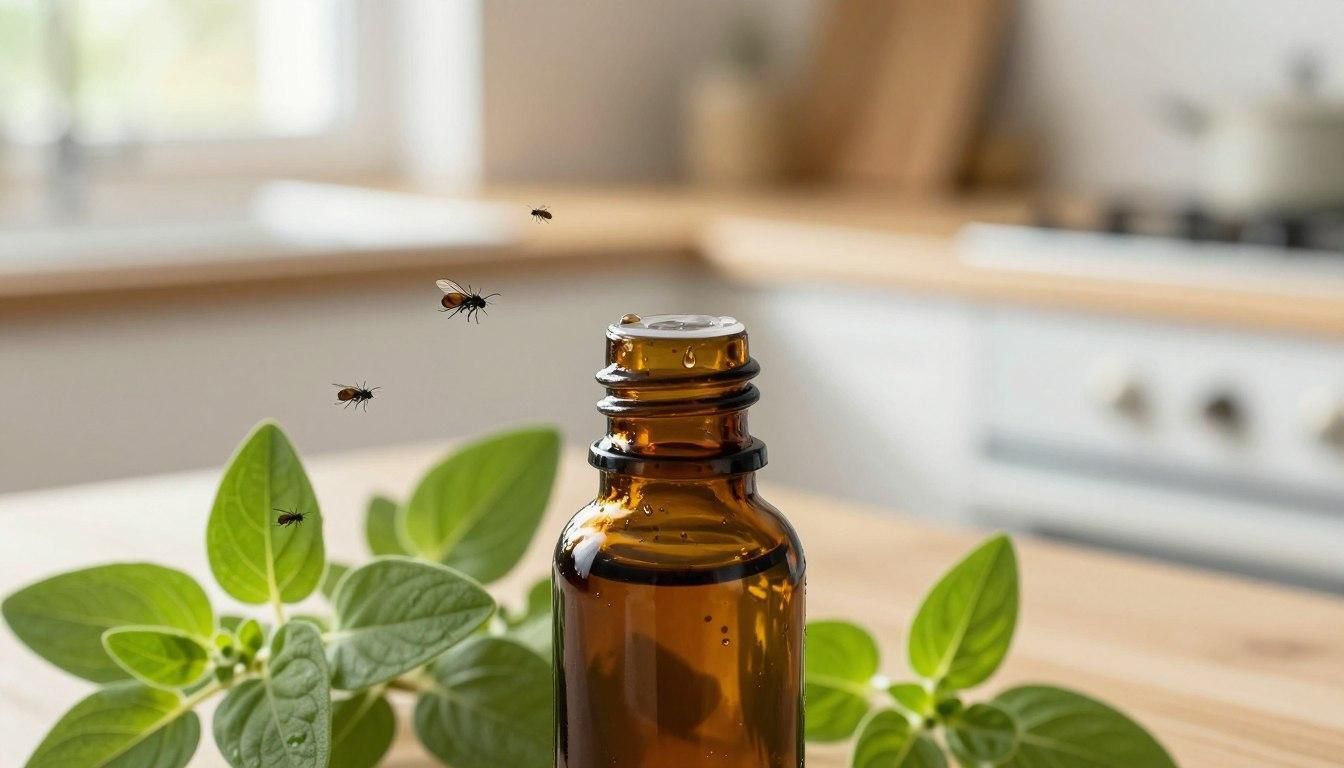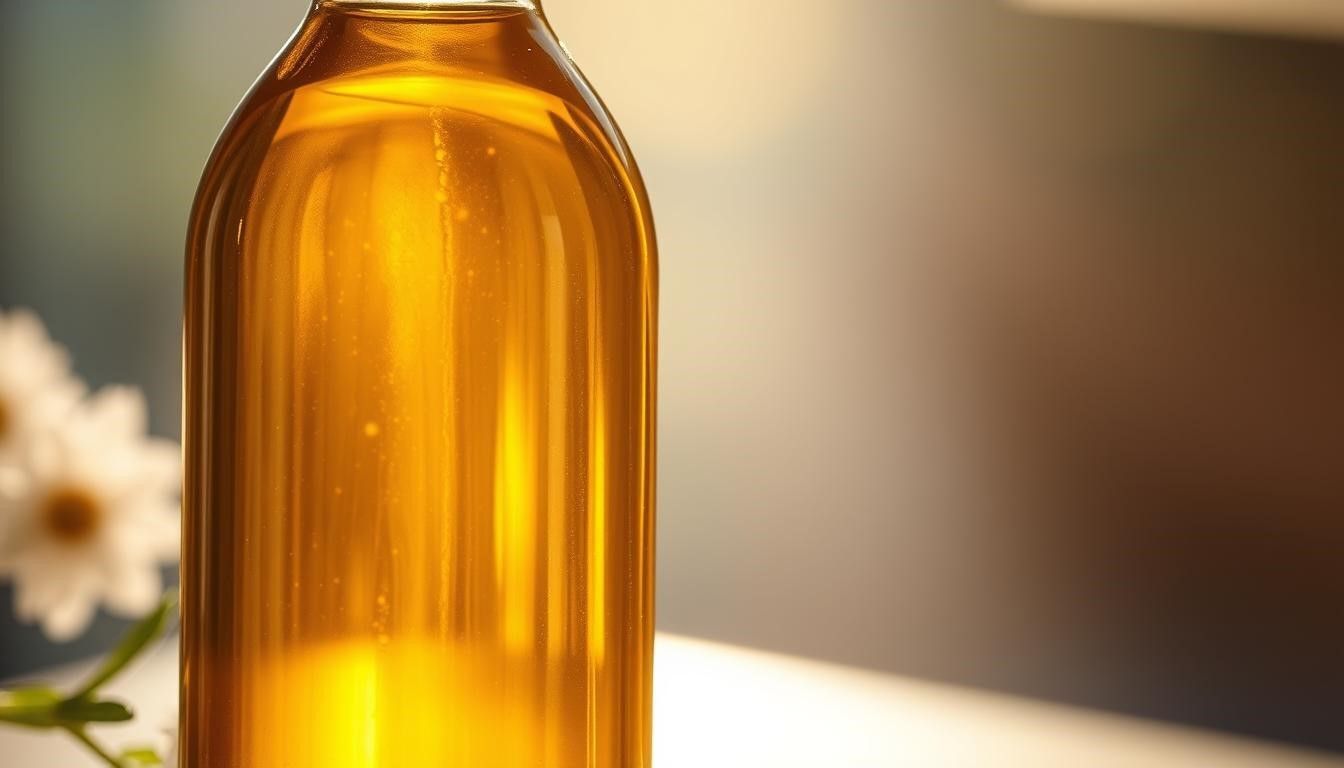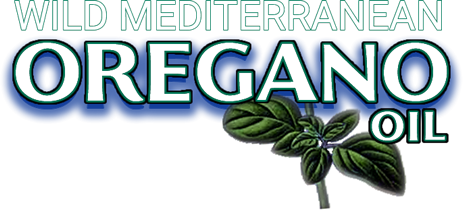Using Oregano Oil to Support Respiratory Health and Combat Seasonal Allergies as the Weather Changes
As the air shifts and plants shed pollen, many people feel the effects on their nose, eyes, and chest. A pollen allergy happens when the immune system mistakes tiny particles from trees, grass, or weeds for a threat. That reaction often shows up as sneezing, congestion, and watery eyes — classic hay fever symptoms that can curb energy and comfort.
Wild Mediterranean Oregano Oil has provided premium oregano drops since 1993, shipped fast across the US and Canada. Many turn to natural supports to complement smart self-care, and this oil is made for that role.
Understanding which trees and grasses pollinate in your region helps you plan when to act. Small changes in wind or humidity can raise pollen counts quickly, so simple steps can make a big difference.

Key Takeaways
- Pollen from trees and weeds moves through the air and often triggers hay fever.
- An allergy reaction comes from the immune system misidentifying an allergen.
- Symptoms include sneezing, congestion, and watery eyes that affect daily life.
- Wild Mediterranean Oregano Oil offers oregano drops trusted since 1993 for supportive care.
- Check local pollen counts and air conditions to reduce exposure and plan relief.
Seasonal allergies explained: what’s causing your symptoms right now
When tiny grains from trees, grasses, and weeds enter your nose and eyes, your body may treat them like a threat. That immune response is called hay fever or allergic rhinitis, and it produces the familiar signs of an allergic reaction.
What is hay fever (seasonal allergic rhinitis)?
Hay fever happens when the immune system mistakes harmless pollen for harmful invaders. Chemicals release in the nose and eyes and trigger inflammation. This creates sneezing, congestion, and watery, itchy eyes.
Common symptoms to watch for
Typical symptoms include repeated sneezing, a runny nose, itchy or watery eyes, and cough or wheeze. You may also notice ear pressure, postnasal drip, headaches, or shortness of breath at times.
Season-by-season triggers in the U.S.
In spring, pollen from trees like birch, oak, and cedar peaks (March–May). Late spring and summer bring grass pollen from Bahia, Bermuda, and Kentucky blue. In late summer into fall, weeds such as ragweed release huge amounts of pollen.
- Because pollen rides in the air, it can travel far and still affect people who live away from the plants.
- About 20 million Americans have pollen-driven hay fever; the same exposure can cause different symptoms in different people.
Wild Mediterranean Oregano Oil is a friendly resource for readers learning about triggers. For product questions or shipping in the US and Canada, call 1-800-326-2001.
How seasonal allergens impact respiratory health, sinus support, and lung cleansing
A clear chain links pollen exposure in the nose to pressure in the sinuses and tightness in the chest. When pollen lands on the nasal lining, irritation can cause congestion and postnasal drainage that trickles toward the throat.
From nose to lungs: postnasal drainage, congestion, and sinus pressure
Blocked sinuses and drainage often feel like more than a minor nuisance. Congestion raises pressure and can lead to headache, ear fullness, and a sore throat as mucus moves down the throat.
These symptoms may also build over days with steady exposure. Simple support—closing windows on high pollen days and using HEPA filtration—cuts the load that reaches your system.
When hay fever and asthma overlap: breathing, wheeze, and airway irritation
Many people with hay fever live with asthma, so the same allergen can trigger an allergic reaction in both nose and lungs. That can show up as coughing, wheeze, or shortness of breath during high pollen counts.
- The immune system responds to pollen and increases sensitivity in the bronchi on dry, windy days.
- Tracking your symptoms helps spot patterns and decide when to use extra support.
- Wild Mediterranean Oregano Oil offers oregano drops many readers use alongside daily sinus support habits; for questions, call 1-800-326-2001 in the US and Canada.
Conventional treatments at a glance: antihistamines, decongestants, sprays, and shots
Effective relief for hay fever often begins with simple options you can buy over the counter and can progress to prescription care or immunotherapy when needed. Talk with your doctor or allergist about which plan fits your lifestyle and symptom pattern.
Over-the-counter options: antihistamines and decongestants
Antihistamines (loratadine, cetirizine, fexofenadine, levocetirizine) block release of histamine and come as pills, liquids, eye drops, and nasal sprays. Some can cause drowsiness; avoid alcohol while taking them.
Decongestants (Afrin, Neo-Synephrine, pseudoephedrine) open nasal passages for quick relief but may raise blood pressure, cause headaches, insomnia, or irritability. Nasal decongestant sprays should not be used longer than five days to avoid rebound congestion.
Prescription care: steroid nasal sprays and leukotriene inhibitors
Corticosteroid nasal sprays (Flonase, Nasacort, Rhinocort) reduce inflammation and work best with daily use. Possible side effects include nasal irritation, nosebleeds, and headache.
Leukotriene inhibitors such as montelukast are prescription-only and may cause mood changes or vivid dreams, so monitor any unusual effects.
Immunotherapy (allergy shots and sublingual tablets): when desensitization makes sense
Immunotherapy uses gradual exposure via allergy shots or sublingual tablets to build tolerance. Shots are given over months to years and often follow a positive skin test or blood test.
Immunotherapy can be a durable treatment when standard medications and daily measures fall short.
- Many medications work best when taken consistently for several days during peak pollen.
- We encourage you to coordinate care with your doctor or allergist; Wild Mediterranean Oregano Oil can be part of that broader wellness approach. For product support in the US and Canada, call 1-800-326-2001.
Where Wild Mediterranean Oregano Oil can fit in your routine
Wild Mediterranean Oregano Oil can be used as a complementary option for people who want natural support for nasal and sinus comfort. Many use it to help support the
immune system and ease everyday responses to triggers without replacing standard care.

What oregano oil is and why people consider it a natural adjunct
Oregano oil is a concentrated botanical extract some people take as a daily drop. Its supporters view it as an adjunct to help manage mild hay fever or allergy symptoms alongside proven measures.
Using oregano oil: drops, timing, and practical tips
Start with a few drops as directed and note how you feel over several days. Take drops with a small snack and keep use steady; this avoids chasing relief only when symptoms spike.
Quality and safety first
Wild-sourced since 1993, this oregano oil emphasizes quality. If you use prescription or over-the-counter medication, talk with your doctor about timing and possible interactions or side effects.
Know when to call a clinician
If symptoms persist, you have asthma, or notice unusual reactions, contact an allergist or your doctor. True fever should be reported promptly to a clinician.
- Track effects in a notes app and pair drops with hydration or nasal rinsing.
- For product questions or orders in the US and Canada, call
1-800-326-2001.
Present-time strategies to reduce exposure and feel better at home
Practical steps taken in your living space make a big difference when pollen counts rise. A short routine each morning helps you control indoor air and limit allergen load quickly.
Daily checklist to protect your space
Start by checking local pollen counts so you pick the best time to run errands and avoid peak exposure.
- Keep windows closed at home and in the car when counts are high and use AC with HEPA-level filtration instead of fans.
- Hot-wash bedding weekly and dry on high heat to remove pollen that settles on sheets and pillowcases.
- Run dehumidifiers and clean mold-prone areas so indoor triggers don’t worsen symptoms.
- Plan easier indoor activity on high-count days and change clothes after spending time near trees or grass.
- Have antihistamines, saline sprays, and decongestants ready for a sudden runny nose or flare.
- Avoid cigarette smoke; it makes the air harsher and can aggravate hay fever symptoms.
Wild Mediterranean Oregano Oil ships quickly in the US and Canada and can complement your at-home plan. For product support call
1-800-326-2001. If you develop a true fever, seek medical advice.
Conclusion
Small, consistent steps at home and with your clinician make a big difference when pollen levels spike.
Keep a simple plan that blends prevention with timely treatment. Use proven tools like nasal sprays, decongestants, and other medications as your doctor advises, and consider immunotherapy or allergy shots if symptoms persist.
Track how people in your home respond, limit time near plants that shed pollen, and note any fever or unusual effects that need prompt care. Wild Mediterranean Oregano Oil offers premium wild-sourced oregano drops since 1993 and can complement your routine.
Order direct for delivery across the US and Canada or call
1-800-326-2001 for friendly help integrating oregano drops with your existing plan.
FAQ
What is hay fever (seasonal allergic rhinitis)?
Hay fever, also called allergic rhinitis, is an immune response to airborne allergens like pollen, mold, or dust. The body releases histamine and other chemicals, causing symptoms such as sneezing, runny nose, itchy eyes, and congestion. It is not caused by a virus and usually does not cause fever.
How do tree, grass, and weed pollen differ through the year?
Tree pollen peaks in spring, grass pollen usually rises in late spring to summer, and weeds such as ragweed release pollen in late summer into fall. Local climate and plant types affect timing, so check local pollen counts to know when exposure is highest.
Can nasal congestion affect my sinuses and lungs?
Yes. Nasal congestion can lead to postnasal drainage, sinus pressure, and increased risk of sinus infection. In people with reactive airways, drainage and inflammation may irritate the lower airways, which can trigger coughing, wheeze, or asthma symptoms.
When should I suspect my breathing issues are more than a simple runny nose?
Seek medical advice if you have persistent wheezing, shortness of breath, recurrent chest tightness, or if over-the-counter meds don’t help. These signs suggest airway involvement or asthma and warrant evaluation by a primary care doctor or allergist.
What over-the-counter options help with nasal allergy symptoms?
Antihistamines (like cetirizine or loratadine) and oral decongestants (pseudoephedrine) can reduce sneezing, itching, and congestion. Saline nasal rinses relieve mucus and irrigation. Use decongestants short-term and follow dosing instructions to avoid rebound or side effects.
How do prescription nasal steroid sprays and leukotriene inhibitors work?
Steroid nasal sprays reduce local inflammation in the nasal passages, easing congestion, sneezing, and itching. Leukotriene inhibitors (montelukast) block inflammatory mediators and are useful when nasal symptoms and asthma overlap. Both require consistent use and a doctor’s prescription.
What is immunotherapy and when is it recommended?
Immunotherapy includes allergy shots (subcutaneous) and sublingual tablets that gradually desensitize the immune system to specific allergens. It’s recommended for people with moderate-to-severe symptoms not controlled by meds or for those seeking long-term reduction in sensitivity. An allergist evaluates suitability with skin or blood testing.
Can oregano oil help with nasal or respiratory symptoms?
Some people use wild Mediterranean oregano oil as a supportive, natural adjunct because of its anti-inflammatory and antimicrobial compounds. It may help ease mild discomfort, but evidence is limited. Use it responsibly, follow product instructions, and discuss with your doctor before adding it to a routine.
How should oregano oil be used safely for sinus support?
Choose a high-quality, wild-sourced oil and follow manufacturer guidance on dilution and dosing. Do not apply undiluted oil to mucous membranes. If you have breathing problems, are pregnant, nursing, or take prescription meds, consult a healthcare provider before use.
What side effects can allergy medications cause?
Antihistamines can cause drowsiness (less with newer agents), dry mouth, or dizziness. Decongestants may raise blood pressure and cause insomnia or nervousness. Nasal steroid sprays can cause nosebleeds or nasal irritation. Talk to your clinician about risks based on your medical history.
How do I choose between over-the-counter meds, prescription care, and immunotherapy?
Mild, intermittent symptoms often respond to OTC antihistamines and rinses. Persistent or severe symptoms may need prescription sprays or leukotriene antagonists. If meds fail or you want long-term relief, immunotherapy is an option. An allergist can create a tailored plan using testing and symptom history.
When is it time to call my doctor or an allergist?
Contact a provider if symptoms are severe, interfere with sleep or daily life, cause breathing problems, or don’t improve with OTC treatment. Also call if you experience new or worsening side effects from a medication. An allergist can perform testing and recommend immunotherapy if indicated.
What practical steps reduce indoor exposure and improve breathing at home?
Check daily pollen counts, keep windows closed during high pollen, run a HEPA air purifier, wash bedding in hot water weekly, and avoid smoking or strong chemical sprays. Use AC filters and change them regularly to lower indoor allergen levels.
Can allergy testing help guide treatment choices?
Yes. Skin prick tests or specific IgE blood tests identify the exact allergens triggering your symptoms. Knowing the triggers helps target avoidance strategies, choose appropriate medications, and determine if immunotherapy is a good option.



